by Danielle Cave – 1 August 2012
Hordes of newly elected Papua New Guinean MPs are now engaged in post-election horse-trading (or as one blogger puts it, the ‘PNG shuffle’). As those with power stitch together a coalition government, one side story is attracting some deserved attention.
Two women have achieved the virtually impossible and been elected to Papua New Guinea’s male-dominated Parliament: poet and activist Loujaya Toni (who ousted her own grandfather*, veteran politician Bart Philemon, to win Lae) and former district treasurer Delilah Gore (Sohe Open).
To call PNG’s parliament male-dominated is an understatement. Since the country’s first national election in 1977, there have been eight polls, including this year’s, which have filled a total of 874 parliamentary seats (thanks to blogger Tavurvur for the counting assistance). Among these, only six have been held by women; that’s a hit rate of 0.69%.
Of course, women can run but there are barriers to entry: campaign cash, political connections and the traditional ‘big man’ style of politics. These dissuade some women from entering the race but for those who do stand for election, it’s an uphill battle in a system that favours money and men and, above all, men with money.
I don’t wish to detract from what has been achieved at this election. For PNG, 2012 brings the best female representation in parliament since the 1977 election (which brought 3 women to power). But looking at the historical trends and the current situation, it is hard to find a more inequitable democratically elected parliament in the world. And this blatant inequality will not be reversed without both domestic and international pressure that helps facilitate more debate on the role of women in PNG politics and a more leveled playing field for those who do take part.
Former PNG Opposition Leader (and Lowy Institute visiting fellow) Dame Carol Kidu resigned this year after 16 years as the only woman in parliament. Dame Carol was vocal and active in parliamentary debate and with the media. And while she was heard by the mass of men surrounding her she was not always listened to: her calls to improve social policy and human rights were rarely given priority despite Papua New Guinea’s dire need for inclusive and resilient social policy.
Consistently poor rankings in the UNDP’s Human Development Index show PNG’s population suffers low life expectancy, poor education and high gender inequality. This index shows that PNG has not made headway on gender inequality since 1995. Also disturbing are the results of a women’s economic opportunity index, crafted by the Economist Intelligence Unit and supported by a range of donors including the New Zealand aid program. This report looks at women’s economic opportunity and advancement in 128 countries. PNG ranks dismally, bettering only Yemen, Chad and Sudan. This should be proof enough that current social and gender policies are not adequate and that urgent policy adjustments need to be made by the incoming PNG Government.
* While Loujaya has described Bart Philemon as her ‘grandfather’ in numerous interviews, he is actually her uncle. (h/t @Tavurvur)
Photo by Flickr user Commonwealth Secretariat.
2 August 2012
Newly-elected female PNG MPs Loujaya Toni and Delilah Gore should be enormously proud of what they have achieved – they have run the election gauntlet and won. They triumphed despite being up against a culture that has a tendency to stifle women’s empowerment and pint-sized finances (when compared with heavyweights Belden Namah and Peter O’Neill). They will now find themselves in the middle of a complex (and some say corrupt) political process where men with liquidity and forceful negotiating skills usually come out on top.
Fortunately, these women have the support of two camps that may prove pivotal in smoothing out what could be an incredibly bumpy five year parliamentary term. First, there’s Dame Carol Kidu, who has immeasurable knowledge and authority after 15 years battling it out in parliament. Her advice will be invaluable.
Second, PNG’s ‘digital generation’ has truly emerged, and the country is benefiting from a more intimate relationship between technology and politics.
A flock of digital entrepreneurs provide PNG with independent contestability and analysis of government procedures and policy via a suite of blogs (many of which I have linked to in this post), Facebook and Twitter. When electoral promises are broken, public funds misused, allegations of corruption arise and when political decisions lack transparency, it will be discussed and debated through Facebook group Sharp Talk, Twitter hashtag #PNG and on a number of blogs and websites.
A group of savvy bloggers provide sharp analysis that PNG’s newspapers could only dream of. Social media users have spread news of the PNG election in real time. Informed and inclusive debates occur daily on SharpTalk; female representation in politics has been a popular topic of late with the online masses delighted and proud of the boosted female presence in PNG’s parliament.
If their post-election remarks are anything to go by, the new members for Lae and Soho Open will be working towards the same goals advocated by the posse of bloggers and social media users: a more transparent and inclusive government that capitalises on the country’s economic growth in a sustainable way, distributes public funds fairly and facilitates service delivery (particularly health and education services) to the provinces.
Papua New Guinea is internationally renowned for being a country of great diversity – geographically, culturally and in its variety of traditions and languages. Yet this wonderful diversity is still not reflected politically. Without decisive political action, the hegemony of PNG’s bigmen will remain for decades to come. Once Peter O’Neill has cobbled together a ruling coalition, one of his first priorities needs to be an assertive and considered social policy framework, one that will assess how to reverse PNG’s terrible track record in gender equality. After all, investing in people and empowering women is smart economic policy.
The election of two women should be celebrated. But this achievement should boost, not mask, the push to build greater equity into the PNG parliament so that future generations of women will not be as disadvantaged as those who first fought to get into parliament in 1977 and those who are still battling today.
Photo by Flickr user Commonwealth Secretariat.

